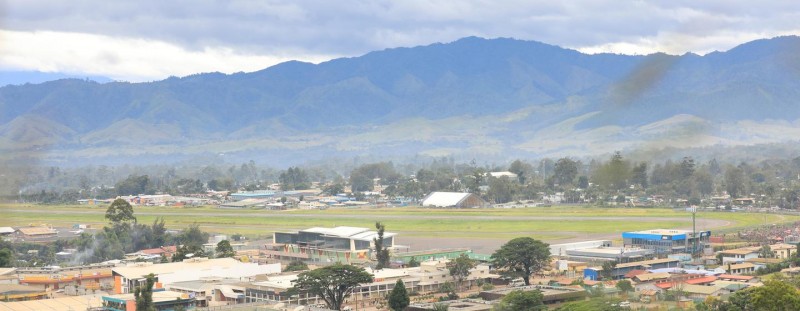Contents
Aerial view of Goroka, Papua New Guinea In Papua New Guinea, defending women accused of sorcery, has become a life-threatening occupation. The UN and European Union run Spotlight Initiative, is promoting legislation that will protect threatened human rights defenders in the country, who risk violence, torture, and death. “When we are trying to help others, or when we go to court to take up someone’s case, we face threats and intimidation,” says Mary Kini, of the Highlands Human Rights Defenders Networks. Human rights defender Mary Kini, Papua New Guinea. For more than 14 years, she has been working to assist victims of sorcery-related violence, and gender-based violence, in Papua New Guinea (PNG), despite the high personal cost that often comes with it. Ms. Kini recently joined fellow human rights defenders Eriko Fuferefa, of the Kafe Urban Settlers Women’s Association, and Angela Apa, of the Kup Women for Peace in Mount Hagen, for a three-day consultation on the development of a Human Rights Defenders’ Protection bill. “For so many years we have not been protected and some human rights defenders have been killed along the way,” said Ms. Fuferefa. “Some of them are abused, or tortured. We have so many bruises.” Following advocacy from the Spotlight Initiative, there is now greater political ownership of issues of violence against women and children, demonstrated by the country’s first Special Parliamentary Inquiry on gender-based violence, which delivered recommendations to parliament and has made notable legislative advances in the area of sorcery accusation-related violence. Peer educators distribute condoms and SRH information at Kokopo markets, Papua New Guinea. Practices to identify those accused of sorcery vary between districts, but generally, when someone has died unexpectedly, the family of the deceased will consult a Glasman (male) or Glasmeri (female) to identify who in the community is responsible. Accusations of sorcery by a glasman or glasmeri have led to the torture and murder of dozens of women across PNG. While accusations can be levelled at both men and women, most of the victims of violence are women. “When my husband died, we took him to his village and there, his family began to suspect that I killed him, so they planned to cut off my head and bury me with my late husband,” explains one survivor. “It wasn’t true, they just wanted to kill me.” “People have these norms, these beliefs,” said Ms. Kini. “When a Glasman or Glasmeri comes along and says something, people automatically react to what they are saying.” Human rights defender Eriko Furerefa, Kafe Urban Settlers Women’s Association, Goroka, Eastern Highlands Province, Papua New Guinea Amendments to the Criminal Code make it illegal to use, attempt to use, or threaten to use their services. Penalties include up to 10 years in jail and fines of up to 10,000 PGK. In submissions to the Special Parliamentary Inquiry in 2021, the Spotlight Civil Society Reference Group (of which Ms. Kini is a co-chair) recommended that the Government review policies and laws that address social norms that allow for sorcery-related violence, including the use of glasman and glasmeri. “This is very important, and I am really pleased that this has passed as this is something we have been asking for, for a long, long time,” concluded Ms. Kini. 
Personal cost

‘They just wanted to kill me’

A long overdue change




Comments are closed, but trackbacks and pingbacks are open.